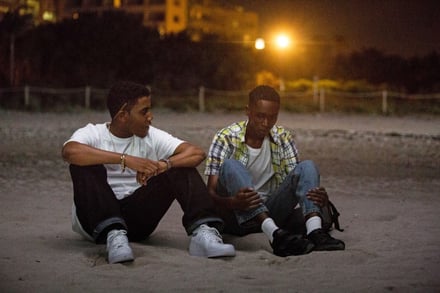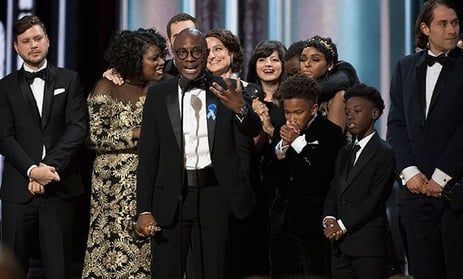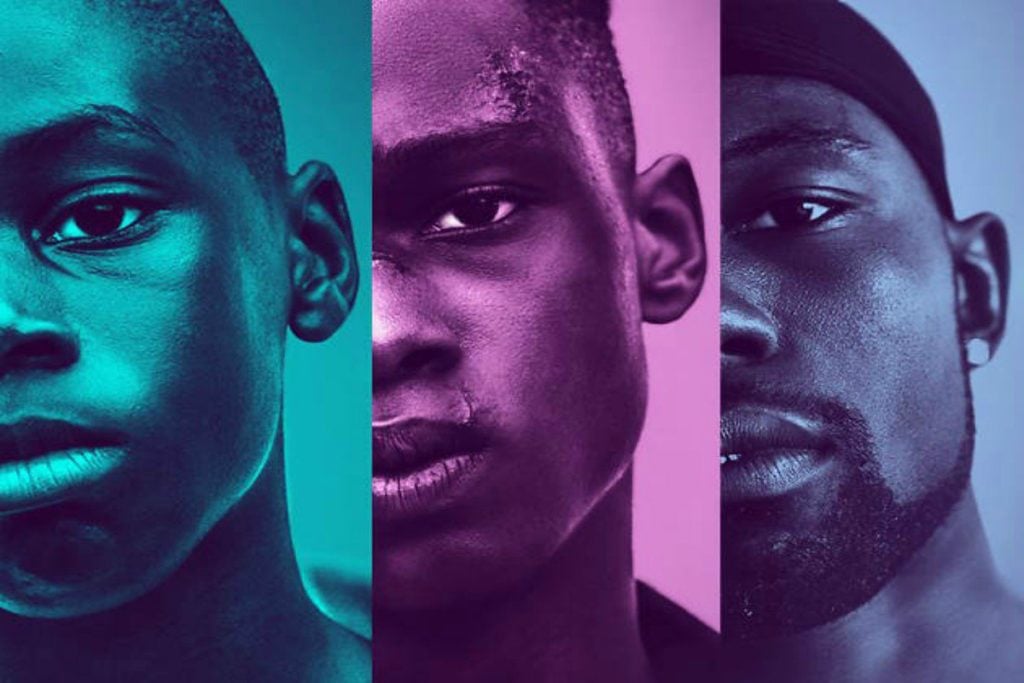The latest Academy Award for Best Picture was earned by a film depicting the story of a poor, gay, black boy in South Florida. Moonlight, by director Barry Jenkins, has achieved great recognition for its beautiful and honest depiction of a storyline which challenges itself at every turn. Its protagonist, Chiron, grows up in the crude environment of Liberty City, Florida, surrounded by the expectations of masculinity and malice, which have been embedded in his community and thus forced upon him. The story is told in three chapters, each exploring a different identity for the protagonist: the shy and humiliated Little, the struggling and conflicted adolescent Chiron, and the quiet yet menacing Black. These three personas are a continuation of Chiron’s life, but they are their own individual characters facing their own struggles. At its core, Moonlight cannot be simply described as a movie about drugs or violence. Its depiction of issues regarding societal pressures and familial relations is so immensely intricate and moving that it would be more accurate to describe this film to be about a floating lesson, a home cooked meal, a first kiss, and a reconnection.
Moonlight depicts a journey of self-discovery and a queer love story which actually feels probable and tangible. The film depicts Kevin, Chiron’s childhood friend and eventual romantic interest, as the typical hypermasculine “player”, just to show him being kind and sensitive later on when it comes to Chiron. The connection between these two boys reaches its peak during a night at the beach in which they share an explorative and vulnerable sexual experience. Such pure cinematographic depiction of love allows for the narrative of hope to enter a space which lacks it, a space in which these two boys kissing would be wrong. To Chiron, kissing Kevin was not meant as a rebellion or as an act of mere curiosity - it was meant as a liberation movement. This motif of untangling oneself from societal expectations is further explored as the movie progresses and Chiron grows up to become a drug dealer. His story takes a turn for the stereotypical, while he is still the same timid teen who kissed another boy among the sands of Miami Beach.

As a young Cuban immigrant, Chiron’s story of self-discovery and trepidation in an unwelcoming environment is far too familiar to me. The town in which I grew up was not the kind of town where you could differ from the norm. It was not the kind of community in which being gay would be okay. As a child, I was the rebel among my peers—the girl who played rough, who didn't apologize, who didn't mind getting her hands dirty. I was an outsider. Even after moving to the USA, those feelings persisted. My family had taken the town with them, in attitudes and mindset. I spent years hiding my sexuality and emotionally distancing myself from the people that surrounded me. Just like Chiron, my environment and the expectations that came with it forced me to suppress crucial parts of myself.
Watching Moonlight, I suddenly felt represented. Being a person of color and queer is already a hard combination to showcase in our modern media, and to me, adding a harsh socio-economic background and a moving storyline centered around gay love seemed to be an impossible feat. Yet somehow this film managed to touch each one of these areas perfectly, and with the recognition from the Academy, it now holds a distinctive place in cinema history.

Through Moonlight, the gay storyline is told sincerely in its grand, intimate moments, as well as its twisted, melancholic ones. Overall, this film does not give itself up to easy categorization or simple definition. It challenges our beliefs and biases, asking questions on the intersectionality of an individual’s identity and how it affects the community these individuals came from. The story of this film resembles my own and a thousand more. It is a journey everyone in the LGBTQ+ community can identify with one way or another. Moonlight reminded me that before being a Point Scholar or a Duke University student, I was— just like Chiron—simply a scared kid trying to defy the world.

This post was written by Toyota Financial Services Point Alum Melanie

